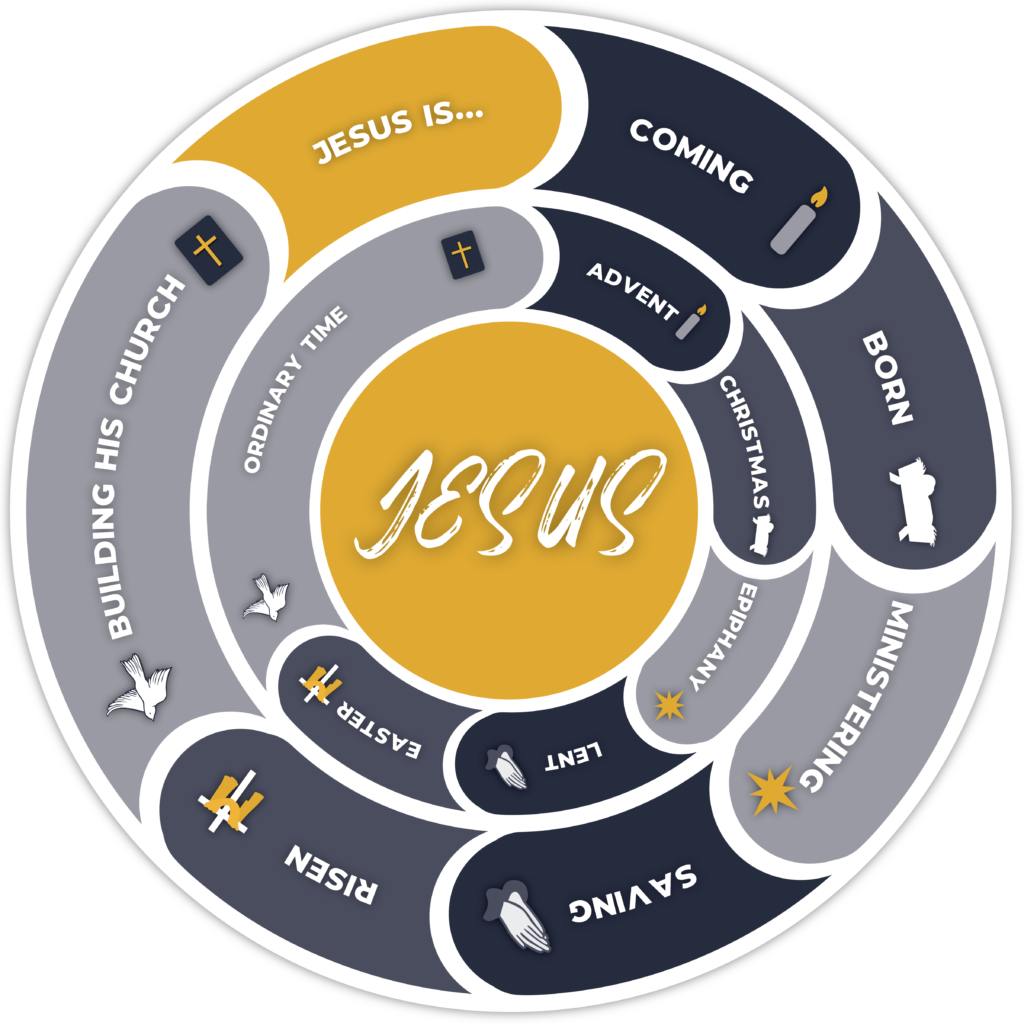The time between Pentecost and Advent is an essential part of the Christian calendar.
 By Tim Sitterley, U.S. Regional Director West
By Tim Sitterley, U.S. Regional Director West
Like many people, I love the big event. Any excuse to celebrate. New Year’s Eve, Fourth of July, St. Patrick’s Day, Cinco de Mayo…I don’t care. Give me a colorful hat and some seasonal music and I’m happy. Appropriate beverage helps. When it comes to the sacred celebrations of the life and ministry of Christ, I am no different. Getting lost in the deep meaning behind centuries of liturgy and tradition keep me longing for the next event on the annual worship calendar. I’m even OK with the fact there are no colorful hats.
As I write this, we are coming off the celebration of Jesus’ resurrection, and looking toward the excitement of the birthday of the Christian church—Pentecost. In GCI’s worship calendar this period is called the Easter season, and it’s the culmination of themed seasons, starting with Advent, and running through Christmas, Epiphany and Easter Prep—each with its own focus and anticipation. (If you would like more information on these seasons and why they are part of GCI’s worship calendar, check out the links at the end of this article.)
But just as soon as the songs and messages dealing with wind and fire and the coming of the Holy Spirit die down, we enter the time known as “Ordinary Time.” Other than Trinity Sunday and Christ The King Sunday, there are no big sacred celebrations until the calendar begins again and we start the Advent preparation for Christmas.
Some have questioned how ANY portion of the year can be considered “ordinary.” “Abolish Ordinary Time,” insists K. E. Colombini in an article by that title. “In the Christian life and in this age,” he asks, “how can any time honestly be deemed ordinary?” Theologian George Weigel agrees: Ordinary Time, he laments, is a “terminological abomination.”
All these critiques assume that the adjective in the title “Ordinary Time” refers to that which is mundane, unexceptional, and humdrum. After all, none of us would feel all that flattered if someone referred to us as “ordinary.” But are they right?
The word “ordinary” here does not mean “routine” or “not special.” Instead, it refers to the “ordinal numbers” (first, second, third, etc.) used to name and count the Sundays (such as the Third Sunday after Pentecost). This term comes from the Latin ordinalis, meaning “numbered” or “ordered,” and tempus ordinarium, “measured time.”
How absurd would it be for the church to treat Ordinary Time as nothing more than run-of-the-mill time? To proclaim Jesus as the center of the center, to focus on the sacred mysteries of Christ’s birth, life, death, resurrection, ascension and the coming of the Holy Spirit, only to then take a time-out for almost half the year?
What should the focus of this important season of the year be? How do we proclaim Jesus to be the center of the center without some celebration? Simple. We celebrate Jesus as the center of the center of our lives every day. To seek the extraordinary IN the ordinary, and to grow deeper in our relationship with our Lord.
The liturgical readings and prayers of Ordinary Time emphasize discipleship. What does it mean to be a disciple of Jesus in matters involving money, time, priorities, etc.? How do we encounter the kingdom of God and perceive it in our daily lives? What are the conditions of discipleship? How do we grow deeper together in our individual and collective faith? These are the very elements we focus on when we speak of the Faith Avenue.
In our preparation for the “next big thing” it is far too easy to miss God in the ordinary. We simply become too busy. There is an old saying that goes “I have only just a minute / only sixty seconds in it / forced upon me / can’t refuse it / didn’t seek it / didn’t choose it / but I will suffer if I lose it…” In our daily and weekly busyness, how much do we lose?
Too often I have seen and experienced what poet and author Kathleen Norris calls “the quotidian mysteries.” (Don’t feel bad, I had to look up “quotidian” myself). Norris reminds us that we can contemplate God in the everyday moments of our lives. She quotes Theresa of Lisieux, who wrote that Christ was most abundantly present to her not “during my hours of prayer … but rather in the midst of my daily occupations.” Norris talks about the value of repetitive activities like walking, baking bread or doing laundry. She notes that these ordinary activities are well-suited to contemplating and listening for God.
Concerns about the future often distract us from the day’s work to which we are called. The responsibility of addressing what is within a given day can be discharged more readily without concern for what lies ahead. Jesus addresses the importance of leaving the future in his hands in the following:
Therefore do not worry about tomorrow, for tomorrow will worry about itself. Each day has enough trouble of its own. (Matthew 6:34)
Finding Jesus, then, involves looking for him in the present moment and place. The past is gone, and the future beyond. Walking with Jesus requires us to be present in the ordinary. There will be plenty of time in the future to prepare for the next big celebration. But for now, we focus on discipleship, on fellowship, and on community. And finding and walking with Jesus in the midst of our ordinary lives will never become mundane.




What a differenca words explained in the semantic context make! Take the word “ordinary”, for example. Much appreciate setting the record straight.
Thanks for that, Tim!
Thank you to learn that we focus on Jesus in the moment,in the daily activities of life.Wonderful.